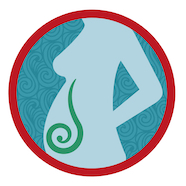 The New Zealand Pregnancy Cohort (NZPC) – Te Pūtoi Hapūtaka o Aotearoa, and the New Zealand Baby Cohort (NZBC) – Te Pūtoi Pēpi o Aotearoa, are research databases used to improve health outcomes for pregnant women (hapū māmā) and their babies (pēpi).
The New Zealand Pregnancy Cohort (NZPC) – Te Pūtoi Hapūtaka o Aotearoa, and the New Zealand Baby Cohort (NZBC) – Te Pūtoi Pēpi o Aotearoa, are research databases used to improve health outcomes for pregnant women (hapū māmā) and their babies (pēpi).
These databases are baskets of knowledge, and are especially valuable for finding out more about prescription medicine use in pregnancy, and the helpful or harmful effects these medicines might have.
Contact us:
Email lianne.parkin@otago.ac.nz
Email sarah.donald@otago.ac.nz
About our researchers
We are a group of researchers in the Pharmacoepidemiology Research Network with expertise in the use and safety of medicines, medical devices, and vaccines.
We use information in the NZPC and NZBC to gain important knowledge and understanding that can be used to enhance health, wellbeing, and equity for pregnant women and their babies.
Mō tatou, ā, mō kā uri a muri ake nei – For us, and our children after us.
We do not accept funding from the pharmaceutical industry, nor do we work with other researchers on projects that are funded by the pharmaceutical industry.
Visit Our People for individual researcher profiles.
Visit Publications for examples of our research.
Safety of medicines in pregnancy
Research that helps us understand more about the use and safety of medicines in pregnancy is essential to supporting pregnant women and their healthcare providers to make informed choices about treatment options. Potential risks and benefits for the mother and baby can be weighed up using the best available information.
Pregnant women need treatment for acute (short-term) or chronic (long-term) health conditions. Because all medicines have the potential to cause harms as well as benefits, we weigh up the potential risks and benefits to help make a decision about the best course of treatment. Studies done to explore the effectiveness and safety of new medicines before they can be licensed for use, do not usually include pregnant women. This means that when a new medicine is first used in the general population, very little is known about the potential harms that could occur if the medicine is taken during pregnancy.
While most medicines cross the placenta and reach the baby, many are safe to be taken during pregnancy. While taking some medicines during pregnancy may cause harm, not taking some medicines during pregnancy can also cause harm. The more information we have about these risks and benefits, the better informed our decisions can be.
Information sources, privacy and consent
The NZPC contains health information about pregnancies in New Zealand between January 2005 and March 2021. The NZBC contains health information about babies linked to those pregnancies. All of the information in these databases comes from health datasets held within the Ministry of Health's National Collections:
Ministry of Health's National Collections (MOH website)
The NZPC and the NZBC do not contain information that could identify particular individuals or their whānau because the data are de-identified. This means that personally identifying information, such as names and addresses, has been removed so that data are not connected to named individuals. Also, the National Health Index (NHI) number (a number that is assigned to each person using health services) has been encrypted (replaced with another number). This way, we can link up an individual's health information held in different datasets, but still protect their privacy.
To create the NZPC and NZBC we use the following Ministry of Health information:
- Antenatal blood tests
- Hospital admissions during pregnancy
- Maternity records
- Mortality records (stillborn infants and maternal deaths)
To gain knowledge and understanding to improve health outcomes for pregnant women and their babies we use a range of healthcare information held in the NZPC and NZBC.
This includes information about:
- Before School Check results
- Cancer registrations
- Demographics from the NHI database
- Diabetes diagnoses
- Dispensings of medicines from community pharmacies
- Funded immunisations (including the COVID-19 vaccine)
- Hospitalisations
- Laboratory testing
- Mental health service use
- Mortality records
- Outpatient and emergency department visits
- Pregnancy care
Consent
Cohort members have not given individual consent to be part of the cohort. However, the research team has approval from the Health and Disability Ethics Committee (Northern B, 21/NTB/235) for the creation of the cohorts and their annual updates. Approval from an ethics committee is also required for each separate study undertaken using the cohorts. This process will help ensure the research has merit and that the privacy of individual participants is protected.
We are unable to retrieve or remove personal information from the NZPC or NZBC. This is because the data are de-identified or encrypted so it isn't possible for us to identify individuals.
How the NZPC and NZBC data will be used
The purpose of the NZPC and NZBC is to generate knowledge that will help improve health outcomes and equity for pregnant women and their babies, particularly in relation to the use of prescription medicines during pregnancy.
Prescription medicines are medicines that can only be obtained with written instruction from an authorised health professional, such as a doctor, nurse, midwife, or some pharmacists. Some of the ways we can do this are:
- Monitoring the use of prescription medicines (and some medical devices and vaccines) during pregnancy in New Zealand, and identifying situations where the prescribing of medications could be improved, and
- Investigating safety concerns about the use of specific prescription medicines (and some medical devices and vaccines) during pregnancy
With the goal of achieving health equity for all, we are able to disaggregate (separate) data in the NZPC and NZBC by ethnicity.
Current research
Our current research includes investigation of:
- The use and safety of anti-nausea medicines during pregnancy
- The use of prescription opioid and non-opioid pain relief medicines before, during, and after pregnancy in New Zealand
- The safety and effectiveness of nicotine and non-nicotine smoking cessation therapies in women trying to quit smoking during pregnancy (this is a collaboration with researchers in Australia and Nordic countries)
- Multinational Opioid Analgesics in Pregnancy Study
- Lithium in pregnancy: an international drug utilization study in fourteen countries
Previous research
Our previous research includes investigation of:
- The use and safety of antidepressant medicines during pregnancy
- Patterns of screening for pregnancy-related diabetes during pregnancy
- Patterns of screening for type 2 diabetes after pregnancy in women diagnosed with pregnancy-related diabetes
- Patterns of dispensing for prescription medicines before, and during, pregnancy in New Zealand
- Patterns of dispensing for prescription medicines that may cause harm to the unborn baby before, and during, pregnancy in New Zealand
How the NZPC and NZBC data will be protected
We regard the data contained within the NZPC and NZBC as a taonga (treasure). Access to the NZPC and NZBC data is a privilege and we take our responsibility to safeguard these data seriously. Our data governance plan is based on the principles of Ngā Tikanga Paihere: a framework guiding ethical and culturally appropriate use of data, and the Five Safes framework, as used by Statistics New Zealand.
The Five Safes framework (Stats NZ website)
Ngā Tikanga Paihere framework (Stats NZ website)
The following Five Safes are used to ensure data in the NZPC and NZBC are used safely and responsibly.
Safe people
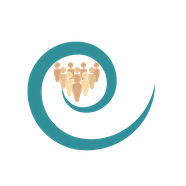 At least one member of the core academic group of the Pharmacoepidemiology Research Network will be involved in any project using the NZPC and NZBC. Co-investigators from outside the group are welcome if they are established researchers working in an academic institution, government agency, or other not-for-profit organisation, or are research students who we are supervising.
At least one member of the core academic group of the Pharmacoepidemiology Research Network will be involved in any project using the NZPC and NZBC. Co-investigators from outside the group are welcome if they are established researchers working in an academic institution, government agency, or other not-for-profit organisation, or are research students who we are supervising.
Research teams for all projects will have appropriate expertise, skills, and relationships with communities; every effort will be made to establish research teams that include Māori investigators.
Safe projects
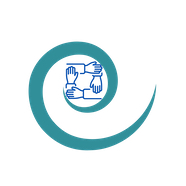 We will only undertake research projects that are in the public interest and that contribute towards better outcomes for all New Zealanders; we will not undertake any projects for potential commercial gain. The University of Otago has established systems, policies, and procedures to support ethical, responsible, and culturally appropriate research practices.
We will only undertake research projects that are in the public interest and that contribute towards better outcomes for all New Zealanders; we will not undertake any projects for potential commercial gain. The University of Otago has established systems, policies, and procedures to support ethical, responsible, and culturally appropriate research practices.
Before a project can start, it will undergo scientific peer-review, Ngāi Tahu Research Consultation Committee engagement, and a study-specific application will be made to the appropriate ethics committee (e.g. University of Otago Human Ethics Committee (Health), Health and Disability Ethics Committee).
Safe settings
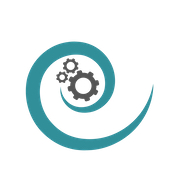 A range of privacy and security measures are in place to keep the data safe. Data are stored in a designated area in the secure environment of the University of Otago's High Capacity Storage (HCS), which is physically located on the Dunedin campus (not cloud-based). The HCS can be accessed only via the University's network, with access restricted to authorised users.
A range of privacy and security measures are in place to keep the data safe. Data are stored in a designated area in the secure environment of the University of Otago's High Capacity Storage (HCS), which is physically located on the Dunedin campus (not cloud-based). The HCS can be accessed only via the University's network, with access restricted to authorised users.
Research team members only have access to the specific data they need to complete a particular study, and all analyses are undertaken within the secure system.
Safe data
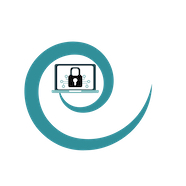 Data in the NZPC and NZBC are de-identified. That means personally identifying information, such as names and addresses, has been removed. National Health Index (NHI) numbers have been encrypted (replaced with another number), and we do not hold a copy of the encryption key.
Data in the NZPC and NZBC are de-identified. That means personally identifying information, such as names and addresses, has been removed. National Health Index (NHI) numbers have been encrypted (replaced with another number), and we do not hold a copy of the encryption key.
For some projects, we may need further information from hospitals. An example of this would be requiring a copy of someone's test results to confirm a medical diagnosis. In these situations, we would provide the Ministry of Health with the encrypted NHI number for that person, together with the diagnosis code. The Ministry would then send us back the unencrypted NHI number so that we could contact the relevant hospital for further information. We would go through the official data access processes at the hospital, and ask that the test results be sent to us with the NHI only - all other identifying information (e.g., name and address) must be removed.
Only two members of the research team would have access to those hospital-obtained records.
Safe outputs
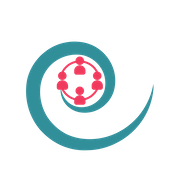 Research findings will only ever be reported in such a way that no individuals can be identified. The ways in which research findings are shared and disseminated will always be carefully considered; balancing benefit and opportunities for communities of interest, with potential sensitivity and risk.
Research findings will only ever be reported in such a way that no individuals can be identified. The ways in which research findings are shared and disseminated will always be carefully considered; balancing benefit and opportunities for communities of interest, with potential sensitivity and risk.
Research collaboration
We do not own the data used to create the NZPC and NZBC; therefore, we are not permitted to give the cohorts to other researchers. We encourage collaboration on projects of scientific merit with researchers from outside of our group. At least one member of our research group is required to be a co-investigator on any such project.
Collaborations with international researchers are welcomed, and can be useful for investigating rare exposures and outcomes. No individual-level data will ever be sent overseas; instead, researchers within each country will analyse their own data according to a common protocol, with findings combined using a meta-analytic approach.
